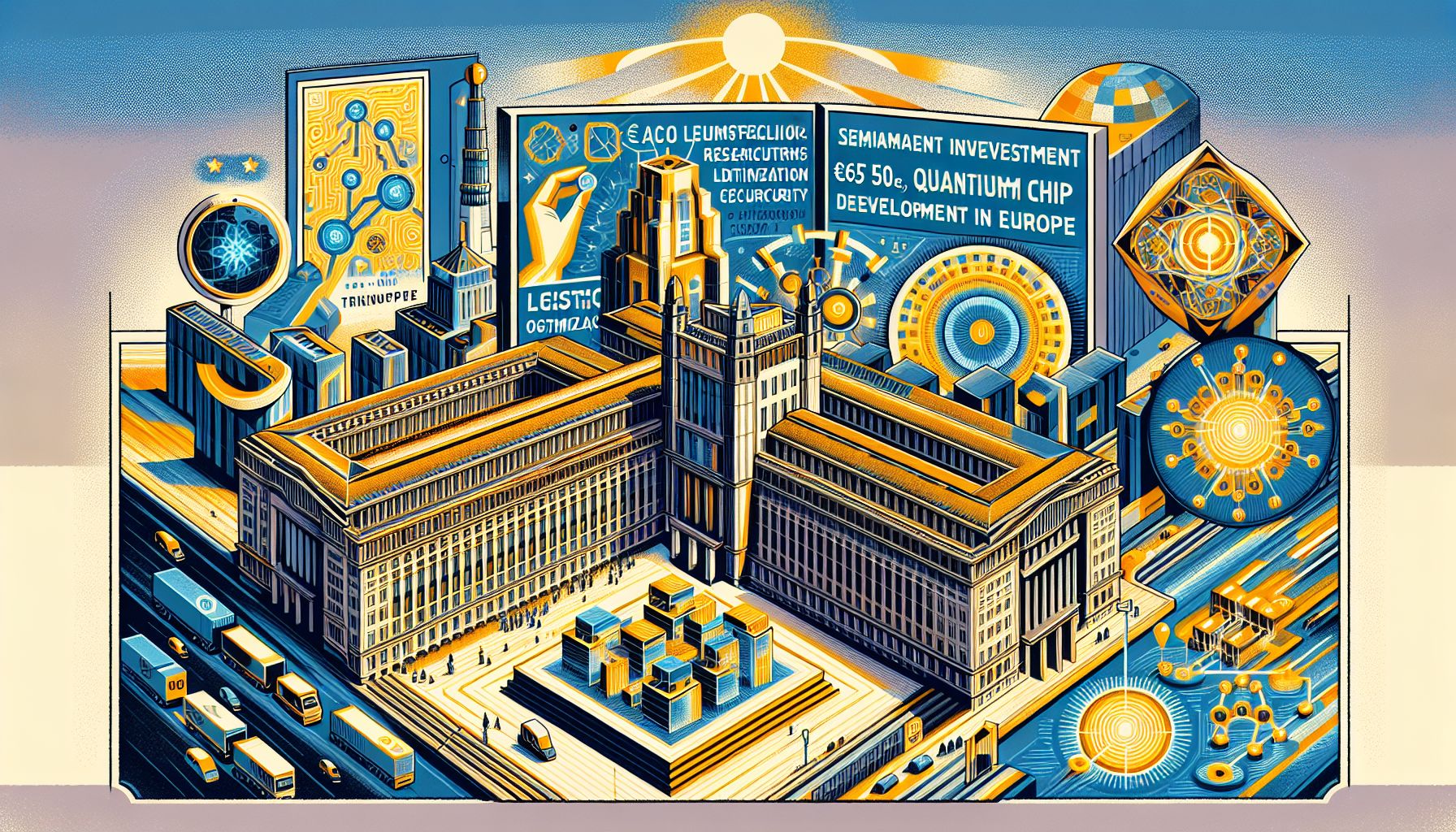EU Invests €65 Million in Quantum Chip Development

Brussels, Tuesday, 24 September 2024.
The European Commission’s Chips Joint Undertaking has launched a €65 million initiative to boost semiconductor research and innovation, focusing on quantum chips for computing and sensing. This investment aims to establish a European manufacturing supply chain for quantum technologies, with applications ranging from logistics optimization to enhanced cybersecurity.
The Significance of Quantum Chips
Quantum chips represent a monumental leap in computing technology, harnessing the principles of quantum mechanics to perform complex calculations at unprecedented speeds. Unlike traditional semiconductor chips that use bits to process information in binary form (0s and 1s), quantum chips use quantum bits or qubits. Qubits can exist in multiple states simultaneously, thanks to a property known as superposition, enabling them to process a vast amount of data more efficiently.
Applications and Benefits
The potential applications for quantum chips are extensive and transformative. For instance, they can solve complex optimization problems in logistics and supply chain management, significantly reducing costs and improving efficiency. In healthcare, quantum chips can accelerate drug discovery by simulating molecular interactions at a quantum level, leading to faster development of new medications. Enhanced cybersecurity is another critical area, as quantum chips can support advanced encryption methods that are more secure against cyber threats. Additionally, quantum chips can improve artificial intelligence (AI) and machine learning algorithms, making them more robust and capable of handling complex datasets.
Mechanics Behind Quantum Chips
Quantum chips operate using the principles of quantum mechanics, specifically superposition and entanglement. Superposition allows qubits to be in multiple states at once, while entanglement enables qubits that are entangled to instantly affect each other’s state, no matter the distance between them. This interconnectedness and multiplicity of states mean quantum chips can perform many calculations simultaneously, which is a significant advantage over classical chips. The Chips Joint Undertaking (Chips JU) has opened calls for projects to develop and manufacture these cutting-edge technologies, aiming to enhance innovation in Europe and establish a robust quantum chip supply chain.
Key Players and Locations
Leading this quantum revolution is the European Commission’s Chips Joint Undertaking, which has allocated €65 million to support semiconductor research and innovation. This funding is expected to be matched by participating states, forming part of a broader €200 million investment over the next three years. Companies like Ephos are at the forefront of this innovation. Based near Milan, Ephos is pioneering glass-based quantum photonic circuits. Led by theoretical physicist Andrea Rocchetto, Ephos has raised $8.5 million in seed funding to establish the world’s first facility dedicated to producing these circuits. Their technology promises faster and more efficient data transfer, crucial for reducing energy consumption in data centers[2].
Future Prospects and Industry Impact
The investment in quantum chip technology is a strategic move to secure Europe’s position in the global semiconductor industry. By focusing on both stability and trapped ions for quantum chips, the Chips JU initiative aims to create pilot lines that will pave the way for commercial applications. This initiative not only boosts Europe’s technological capabilities but also strengthens its economic resilience by reducing dependency on non-European semiconductor sources. The closing date for proposals is set for 21 January 2025, giving interested organizations ample time to apply for funding through the official portals[1].

